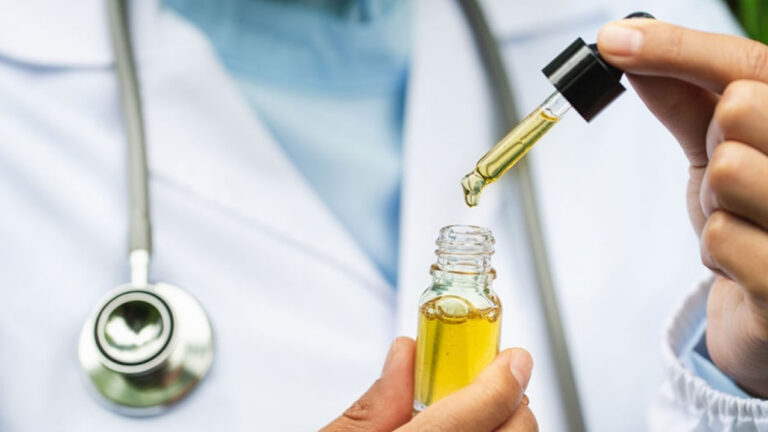The ongoing COVID-19 pandemic has spurred researchers worldwide to search for novel therapies and preventive measures, especially for those who may not have access to vaccines or are experiencing breakthrough infections. In this context, a recent study led by the University of Chicago, in collaboration with the University of Louisville and other institutions, has shed light on a promising candidate: cannabidiol (CBD), a non-psychoactive compound derived from the cannabis plant.
Understanding the Study
The research team, in their study published in Science Advances, discovered that CBD can inhibit the infection of human cells by SARS-CoV-2, the virus responsible for COVID-19, both in vitro (in lab-grown cells) and in vivo (in live mice). This groundbreaking finding was further supported by an analysis of medical records from patients taking FDA-approved CBD for epilepsy treatment, which revealed a significant negative association between CBD use and SARS-CoV-2 positive tests.
To grasp the significance of these findings, it's essential to understand the methodology behind the study. The researchers first treated human lung cells with a non-toxic dose of CBD for two hours before exposing them to SARS-CoV-2. They then monitored the cells for the presence of the virus and its spike protein. Remarkably, above a certain threshold concentration, CBD inhibited the virus's ability to replicate, an effect that was consistent across different cell types and viral variants.
Interestingly, CBD did not prevent SARS-CoV-2 from entering the cells; instead, it blocked viral replication early in the infection cycle and up to six hours post-infection. This observation led the researchers to investigate the underlying mechanism, which they found to involve CBD's activation of the host cell's stress response and the production of interferons, a type of antiviral protein.
From Lab to Real World
To validate these laboratory findings, the research team analyzed real-world data from 1,212 patients in the National COVID Cohort Collaborative. They discovered that patients taking a medically prescribed oral solution of CBD for epilepsy had significantly lower rates of COVID-19 compared to a matched sample of patients from similar backgrounds who were not taking CBD.
While these results are promising, it's crucial to note that the study's findings do not suggest that commercially available CBD products can prevent COVID-19. The researchers emphasized that the COVID-blocking effects of CBD were observed only with high purity, specially formulated doses taken in specific situations. They cautioned against the use of commercially available CBD products, which vary in potency and quality, as a means to prevent or treat COVID-19.
The Road Ahead
The study's authors stress that their findings warrant clinical trials to determine whether CBD could be used as a preventive or early treatment for COVID-19. They suggest that CBD might be particularly useful in situations where individuals are in high-risk areas, suspect exposure, or have recently tested positive for the virus.
However, they also highlight the importance of using CBD under medical supervision, as it may have potential side effects and interact with other medications. Additionally, more research is needed to establish the precise dosing and safety profile of CBD for COVID-19 prevention and treatment.
A Testament to Scientific Collaboration
Beyond its potential implications for the fight against COVID-19, this study serves as a remarkable example of the power of interdisciplinary scientific collaboration. The research team brought together experts from diverse fields, including microbiology, molecular engineering, cancer biology, and chemistry, across multiple institutions.
This collaborative approach allowed for a comprehensive investigation of CBD's antiviral properties, from molecular mechanisms to real-world patient data analysis. As the study's senior author, Marsha Rosner, pointed out, "This was truly a team-science effort, and that's something that really excites me. This is the way science should be carried out."
Conclusion
The discovery of CBD's potential to block SARS-CoV-2 infection and replication is a significant development in the ongoing search for COVID-19 therapeutics and preventive measures. While more research is needed to confirm these findings in human clinical trials and to establish safe and effective dosing regimens, this study offers a glimmer of hope in the fight against the pandemic.
As we continue to navigate the challenges posed by COVID-19, it is essential to remember that the most effective ways to protect ourselves and others remain getting vaccinated, following public health guidelines, and supporting scientific research that may lead to new treatments and preventive strategies. The collaborative spirit and innovative thinking demonstrated by the researchers involved in this study serve as an inspiring reminder of the critical role that science plays in addressing global health crises.


